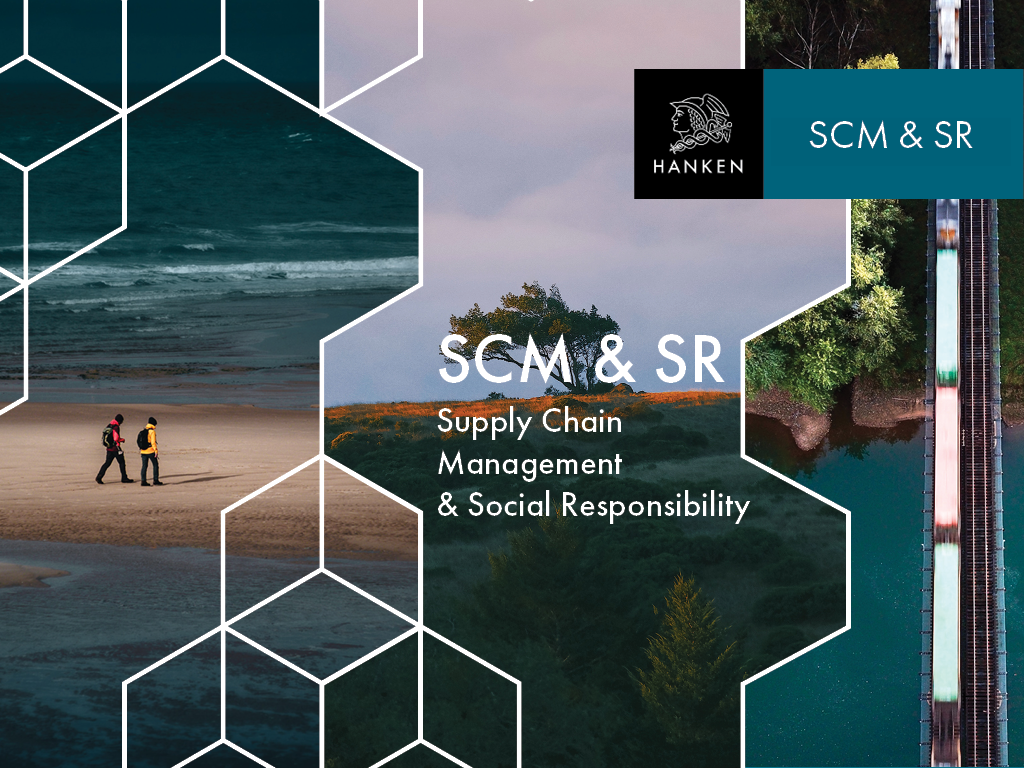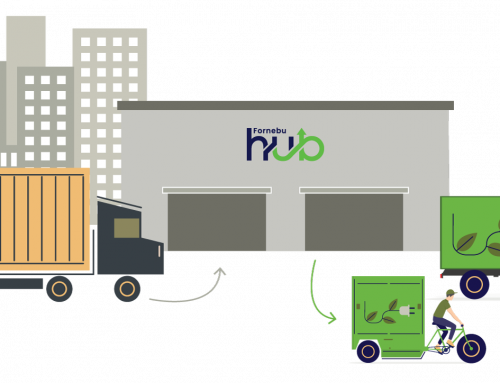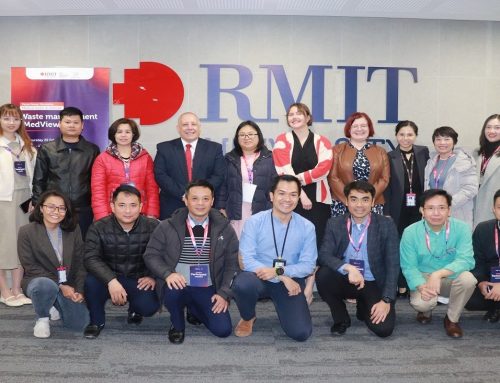This blog post presents the topics of our current PhD researchers at the subject of Supply Chain Management and Social Responsibility.

Humanitarian logistics in conflict and complex emergencies – Tamara Kirkwood-Wright
The focus of my research is to identify what localisation involves and how effective different elements of a localisation strategy will be when implemented in settings of conflicts. Humanitarian logistics research in conflict settings is lacking and understanding of exactly what constitutes localisation is broad and vague in discussion. It is not feasible to develop a universal approach to conflict and so a mass shift to localisation cannot be the only answer; every conflict is different.
The early 2020s have seen an exponential rise in global deaths resulting from conflict. Opening the 2023 session of the UN General Assembly, Secretary General Guterres announced that we were witnessing ‘a surge of conflict, coups, and chaos’, evidenced by continued unrest in countries such as Ukraine, Ethiopia, and Yemen, but also renewed and extreme violence in Gaza, Sudan, and Myanmar. The changing nature and increasing complexity of conflicts makes the challenge of determining an appropriate response strategy far greater. We are currently observing a shift away from terrorism and towards state-based conflict, an increasing disregard for international humanitarian law and international human rights law, and a rise in the availability of weapons and new technology making the context progressively more dangerous for civilians and humanitarians.
With this rising trend in conflict, there is also growing dialogue on localisation. Localisation is the involvement of local governments, organisations, communities, and individuals, in proximity to the disaster, in the design and implementation of a humanitarian response. Since the Grand Bargain in 2016 and the pledge for 25% direct funding to local actors, localisation has also been incorporated in initiatives such as the Charter for Change, the UN’s Sustainable Development Goals, the Pledge for Change, and the Agenda for Humanity. More recently the Covid-19 pandemic has reinvigorated interest in localisation following travel restrictions on people and the necessity for shortened supply chains.
Localisation offers many benefits, not only in the immediate response to a conflict but in creating a sustainable society through investment in local organisations and infrastructure, and the development of local capabilities. By far one of the greatest advantages that the inclusion of local people brings is their network of connections and access. Involving locals provides a rich understanding of the local culture and community dynamics enabling a greater level of trust between responders and those in need. Localisation also offers the opportunity to improve the humanitarian sector’s growing carbon footprint and a reduction operating costs through local sourcing and logistics.
Despite these benefits and the concerted focus on increasing localisation, it’s implementation by humanitarian organisations remains stilted. Aid funds are strained, and organisations often pursue one-size-fits-all response strategies which prioritise cost reduction but are not appropriate for the complex local dynamics present in conflict. This in part could be due to humanitarians (or even academics!) not having a clear understanding on what localisation entails or how to implement it. Transparency and clarity are therefore required because embracing and effectively implementing localisation is not just a choice; in conditions of conflict where it is feasible, it is an imperative step towards a more effective, sustainable, and empathetic humanitarian response amid escalating global conflicts.
Circular economy and waste management in humanitarian logistics – Margot Rocheteau
Humanitarian supply chains often face a tough challenge in balancing immediate relief needs and long-term environmental sustainability. While the focus has traditionally been on providing urgent aid during emergencies, recent years have shed light on the negative environmental impacts of these operations. The problem stems from a disconnect between short-term actions and the long-term consequences for the environment. This has led to a lack of consideration and investment in making humanitarian supply chains environmentally sustainable. The linear approach of these operations, characterized by a take-make-waste mindset, contributes to resource depletion and pollution. A potential solution lies in adopting a circular economy model, which aims to maximize resource value and minimize waste.
To highlight the importance of integrating circular economy concepts, the project is divided into three sections: environmentally sustainable design, waste management, and the circular economy. The first project is on waste management, an often-overlooked aspect, especially at the end of the supply chain. Neglecting proper waste management not only harms the environment but also disrupts relief operations and endangers ecosystems. The research aims to understand how closing the loop in humanitarian supply chains can mitigate environmental impact and enhance their abilities during emergency responses.
The research poses three key questions: What is the interplay between sustainable design, waste management, and the circular economy in humanitarian supply chains? How do humanitarian actors understand and interpret sustainable changes in their supply chains? What are the factors, strategies, and barriers in setting and achieving sustainability goals in the context of humanitarian logistics?
The primary objective is to comprehend how circular humanitarian supply chains can mitigate their environmental impact while improving their effectiveness during emergency responses. This includes examining the entire supply chain, from infrastructure design to waste management during emergency responses, and exploring how the use of a third party can help make sense of circular humanitarian supply chains.
By promoting sustainable solutions, the study aims to enhance the efficiency and quality of humanitarian supply chains for vulnerable populations. The research will contribute to addressing the critical issue of environmentally sustainable supply chains in humanitarian relief and its impact on humanitarian operations.
The methodology involves three research papers. The first will focus on waste management, employing a mixed-methods approach to gather data from humanitarian organizations and cases in disrupted countries. The second paper will delve into the dynamics and challenges of integrating sustainable practices, emphasizing circular humanitarian supply chains and sensemaking theory. The third paper will investigate how raw material selection can promote environmentally sustainable designs, using a framework to evaluate the environmental impact in humanitarian supply chains.

Those who have completed a university level Master’s degree can apply to Hanken for doctoral studies. Doctoral students (i.e., doctoral researchers, PhDs) may study for the degree Doctor of Science (Economics and Business Administration) or for the degree Doctor of Philosophy. You can read more about PhD studies on Hanken’s website. Application round this year takes place: 1.12.2023 – 3.1.2024.




